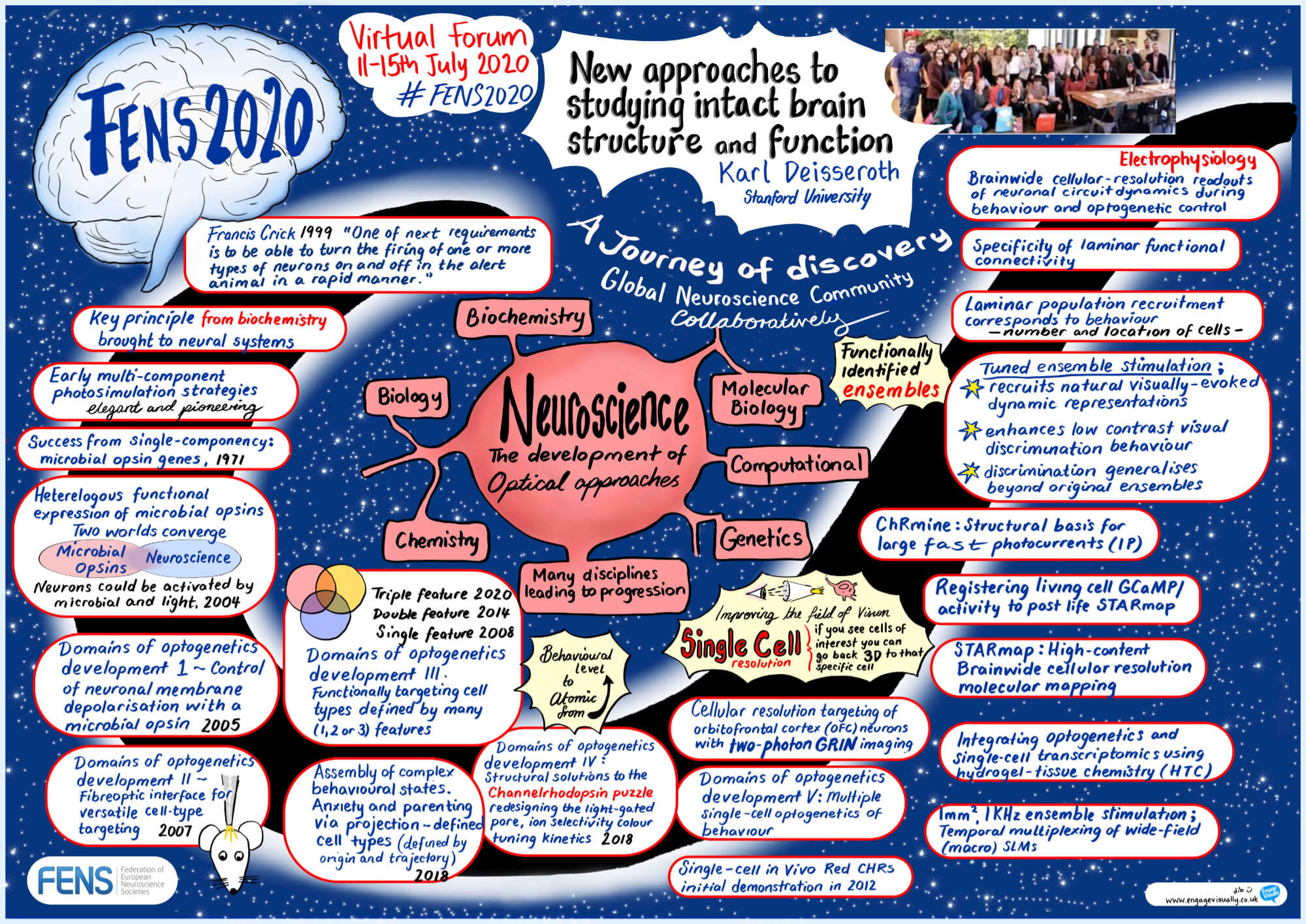FENS facilitates the dissemination of scientific information through a series of online resources, available to all.
Browse the directory below and access a vast array of online materials, including position papers, training and career development materials, outreach and advocacy resources.
| Title | |
|---|---|
| “New approaches to studying intact brain structure and function” by Karl Deisseroth (US) |

|
| A Brain Museum Tour of Europe | Open URL |
| A Virtual Museum of Irish Brain Science | Open URL |
| ALBA interview series on diversity in brain sciences |

|
| Angelo Mosso and his brain-mind problem, a seed for the modern brain imaging | Open URL |
| Are Mental Disorders Malfunctions of the Brain? – Corpus Curiosum (Series I) |
 Open URL
Open URL
|
| Brain Awareness Week 2008 projects | View/Download |
| Brain Awareness Week 2009 projects | View/Download |
| Brain Awareness Week 2010 projects | View/Download |
| Brain Awareness Week 2011 projects | View/Download |
| Brain Awareness Week 2012 projects | View/Download |
| Brain Awareness Week 2013 projects | View/Download |
| Brain Awareness Week 2014 projects | View/Download |
| Brain Awareness Week 2015 projects | View/Download |
| Brain Awareness Week 2016 projects | View/Download |
| Brain Awareness Week 2017 projects | View/Download |
| Brain Awareness Week 2018 projects | View/Download |
| Brain Awareness Week 2019 projects | View/Download |
| Brain Awareness Week 2020 projects | View/Download |
| Brain Awareness Week 2021 projects | View/Download |
| Brain Awareness Week 2022 projects | View/Download |
| Brain science mapping the landscape of brain and neuroscience research | View/Download |
| Brains by catalogue: surveying preserved Human brains in Portugal | Open URL |
| Cajal: Lessons on brain development | View/Download |
| Consensus Document on European Brain Research | View/Download |
| Consensus Statement on European Brain Research: The need to expand Brain Research in Europe | View/Download |
| Cost of Disorders of the Brain in Europe | View/Download |
| Does your brain actually think? The mereological fallacy in neuroscience – Corpus Curiosum (Series III) |

|
| Early Life Stress: Impact on Brain and Psychopathology | Open URL |
| Exercise in Brain Health and Disease | Open URL |
| FENS Friday webinar: “Blood biomarkers: a window to the brain?” | PLAY VIDEO |
| FENS Friday webinar: “Brains on Sleep” – recording |

|
| FENS Friday Webinar: “Translational electrophysiological assessment of brain excitability” |
 PLAY VIDEO
PLAY VIDEO
|
| FENS Friday webinar: Brain development and neuropsychiatric disorders |

|
| FENS Friday webinar: The importance of coordination and collaboration in brain research |

|
| FENS webinar on “Brain Research Needs Animal Models: Let’s Talk About It!” |

|
| FENS webinar: “Running a Brain Awareness Week event in 2023” |

|
| FENS-SfN Summer School 2018 on Neural stem cells, brain orgaoids and brain repair |

|
| How Does Myelin Contribute to Brain Plasticity? | Open URL |
| Mechanisms of Post-Ischemic Brain Adaptation | Open URL |
